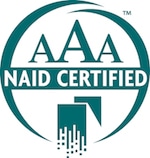Why Shred?
Identity theft and unauthorized disclosure of private information has reached epidemic proportions. According to the Better Business Bureau, last year alone this crime claimed more than 15 million victims. But information theft is not just something that affects consumers. The FBI estimates that information theft costs American businesses as much as $50 Billion in losses each and every year.
With over 50 federal laws mandating that all businesses, healthcare facilities and financial institutions protect the confidential information of their customers, clients and patients, it is imperative that you establish a shredding program. Failure to do so can expose your organization to severe fines, bad publicity and lost business.
What to shred?
Do you say you don’t have much confidential information that needs to be shredded? Think again! Here is a list of the type of information that absolutely should be shredded.
- Account records and ledgers
- Activity sheets
- Advertising
- Applications
- Appraisals
- Bank statements
- Bids and quotes
- Budgets
- Business plans
- Canceled checks
- Client lists
- Contact lists
- Corporate tax records
- Correspondence
- Customer records
- Disciplinary reports and promotions
- Educational reports
- Expense reports
- Financial statements
- Forecasts
- Formulas, product plans and tests
- General service information
- Health and safety reports
- Internal reports
- Legal Documents
- Lottery tickets
- Magnetic media
- Maps and blueprints
- Marketing plans
- Medical records
- Microfilm and microfiche
- New product information
- Payroll documents
- Performance appraisals
- Personnel files
- Plastic credit and ID cards
- Research and development reports
- Sales forecasts
- Specification drawings
- Strategic reports
- Strategies
- Supplier purchase orders
- Supplier reports
- Supplier specifications
- Test scores and class rosters
- Training information
- Treatment programs

